
Larnaca Salt Lake: A Natural Wonder of Cyprus
Larnaca Salt Lake, located near the city of Larnaca in Cyprus, is a spectacular natural site that draws visitors with its stunning beauty and unique ecosystem. The lake is actually a network of four interconnected salt lakes, making it one of the most important wetland systems in the Mediterranean. It covers an area of about 2.2 square kilometers and is home to a diverse range of flora and fauna. During the winter months, the lake is filled with water, creating a picturesque landscape that attracts numerous bird species, notably flamingos. Thousands of these elegant birds migrate to the lake, transforming it into a vibrant pink spectacle. The sight of flamingos wading through the shallow waters against the backdrop of the majestic Stavrovouni Monastery is a memorable experience for any visitor. In the summer, the lake dries up, leaving behind a thick crust of salt. This salt has been harvested since ancient times, adding a historical dimension to your visit. Walking along the salt flats, you can observe the shimmering salt crystals and take in the serene, almost otherworldly atmosphere. The lake also has therapeutic properties, and the mud found here is said to have healing benefits for the skin. Nearby, the Hala Sultan Tekke, a revered Muslim shrine, adds cultural significance to the area. This beautiful mosque, surrounded by lush palm trees, is a peaceful spot for reflection and offers a glimpse into the rich history and diverse cultural heritage of Cyprus.
Local tips in Larnaca Salt Lake
- Visit during winter to see the flamingos in their full glory.
- Pack comfortable walking shoes to explore the salt flats.
- Bring a hat and sunscreen to protect from the sun, especially in summer.
- Check out the Hala Sultan Tekke nearby for a cultural experience.
- Consider visiting early in the morning or late afternoon for the best lighting for photography.
Larnaca Salt Lake: A Natural Wonder of Cyprus
Larnaca Salt Lake, located near the city of Larnaca in Cyprus, is a spectacular natural site that draws visitors with its stunning beauty and unique ecosystem. The lake is actually a network of four interconnected salt lakes, making it one of the most important wetland systems in the Mediterranean. It covers an area of about 2.2 square kilometers and is home to a diverse range of flora and fauna. During the winter months, the lake is filled with water, creating a picturesque landscape that attracts numerous bird species, notably flamingos. Thousands of these elegant birds migrate to the lake, transforming it into a vibrant pink spectacle. The sight of flamingos wading through the shallow waters against the backdrop of the majestic Stavrovouni Monastery is a memorable experience for any visitor. In the summer, the lake dries up, leaving behind a thick crust of salt. This salt has been harvested since ancient times, adding a historical dimension to your visit. Walking along the salt flats, you can observe the shimmering salt crystals and take in the serene, almost otherworldly atmosphere. The lake also has therapeutic properties, and the mud found here is said to have healing benefits for the skin. Nearby, the Hala Sultan Tekke, a revered Muslim shrine, adds cultural significance to the area. This beautiful mosque, surrounded by lush palm trees, is a peaceful spot for reflection and offers a glimpse into the rich history and diverse cultural heritage of Cyprus.
When is the best time to go to Larnaca Salt Lake?
Iconic landmarks you can’t miss
Holy Church of Saint Lazarus
Discover the spiritual and architectural beauty of the Holy Church of Saint Lazarus, a historic gem in Larnaca, Cyprus.
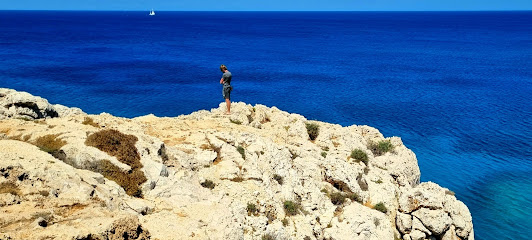
Finikoudes Beach
Discover the serene beauty of Finikoudes Beach in Larnaca, Cyprus, where golden sands meet vibrant local culture and stunning Mediterranean sunsets.
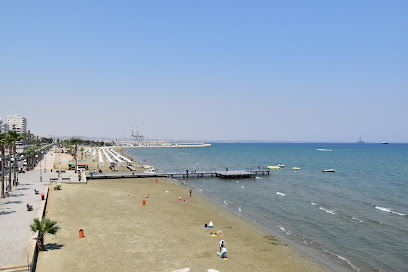
Landmark of Hala Sultan Tekkesi
Explore the historical and spiritual essence of Hala Sultan Tekkesi, a stunning mosque nestled by the scenic Salt Lake in Larnaca, Cyprus.
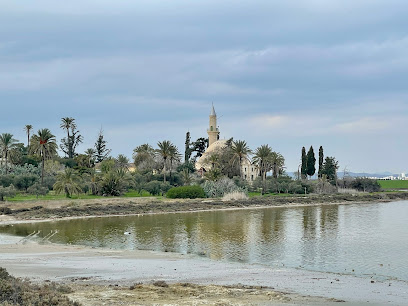
Larnaca Marina
Explore Larnaca Marina: a vibrant hub where maritime history meets modern leisure on the beautiful Cyprus coast.
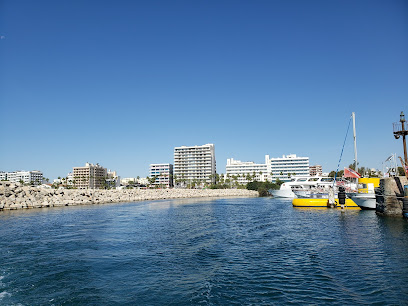
Larnaka Medieval Fort
Explore the historical Larnaka Medieval Fort, a captivating fortress offering stunning views and fascinating exhibitions in the heart of Cyprus.
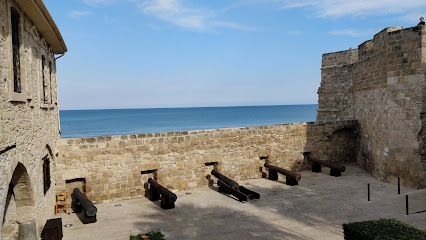
Kamares Aqueduct
Discover the Kamares Aqueduct in Larnaca, Cyprus, a stunning 18th-century engineering marvel surrounded by picturesque landscapes.
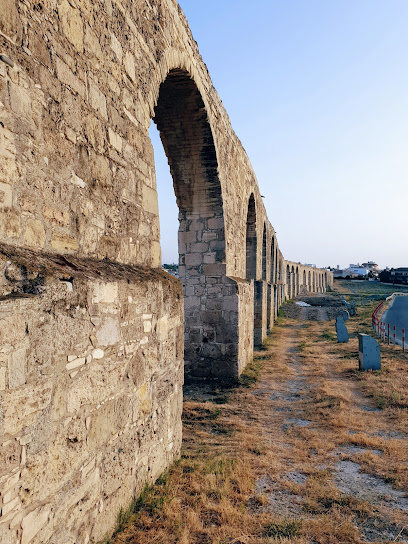
Salt Lake View Point
Discover breathtaking views and vibrant wildlife at the Salt Lake View Point, a stunning natural gem in Larnaca, Cyprus, perfect for birdwatching and photography.
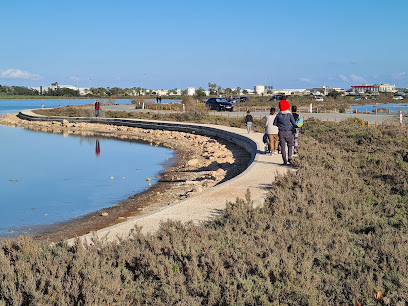
Kastella Beach - Blue Flag
Discover Larnaca's serene coastal charm at Kastella Beach: a Blue Flag paradise with golden sands, tranquil waters, and a vibrant local atmosphere.
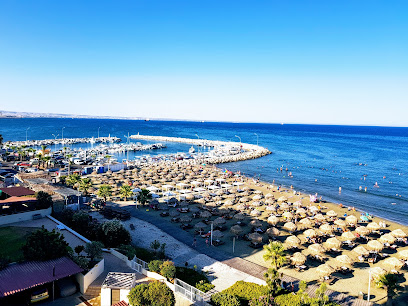
Pattihio Forest Park
Escape to nature in Larnaca's Pattihio Forest Park: trails, art, birdwatching, and cultural events await in this tranquil green oasis.
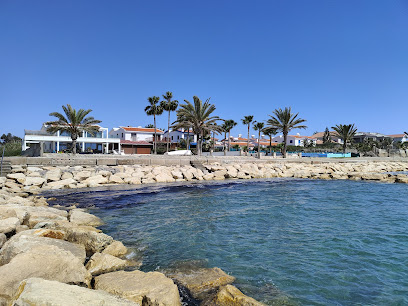
Larnaca Salt Lake Trail
Discover the serene beauty of Larnaca Salt Lake Trail, a breathtaking hiking area in Cyprus, perfect for nature lovers and adventure seekers alike.
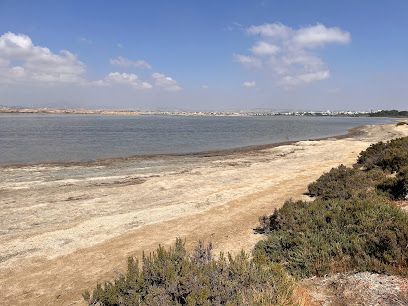
Archaeological Site of Kition
Uncover ancient civilizations at Kition, Larnaca: a journey through Mycenaean, Phoenician, and Greek history on the shores of Cyprus.
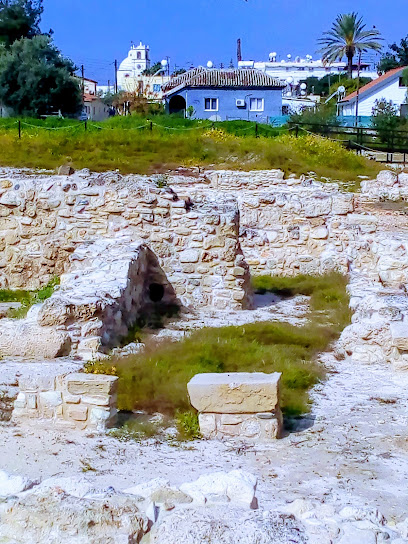
Flamingo observatory spot
Experience the enchanting Flamingo Observatory Spot in Larnaca, Cyprus, where nature's beauty unfolds with vibrant flamingos and stunning landscapes.
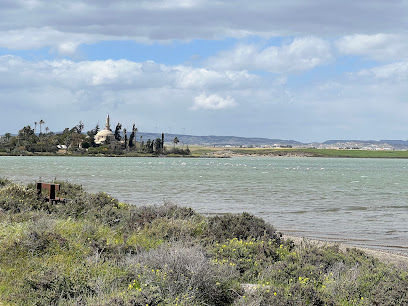
Byzantine Museum of Saint Lazarus
Discover the Byzantine Museum of Saint Lazarus in Larnaca, a captivating journey through Cyprus's rich Byzantine history and artistry.
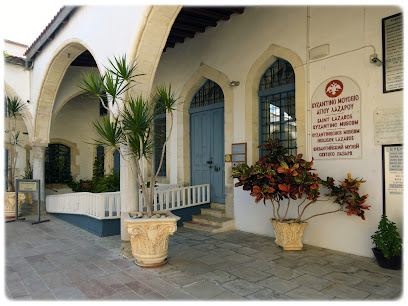
The Salt & Pepper Museum
Discover the quirky charm of The Salt & Pepper Museum in Larnaca, Cyprus - a unique stop for culinary history and collectible art.
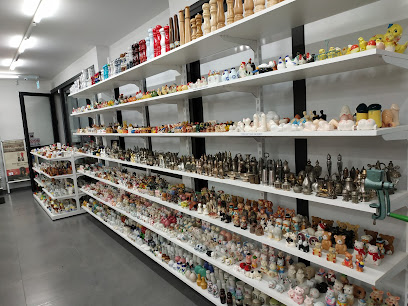
Salt lake
Explore the serene landscapes and vibrant wildlife at Salt Lake in Larnaca, a perfect hiking destination for nature lovers.
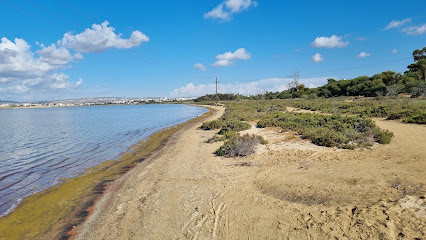
Unmissable attractions to see
Mackenzie Beach
Experience the vibrant energy of Mackenzie Beach in Larnaca, Cyprus, where golden sands meet crystal-clear waters and a lively promenade offers endless entertainment and dining options.
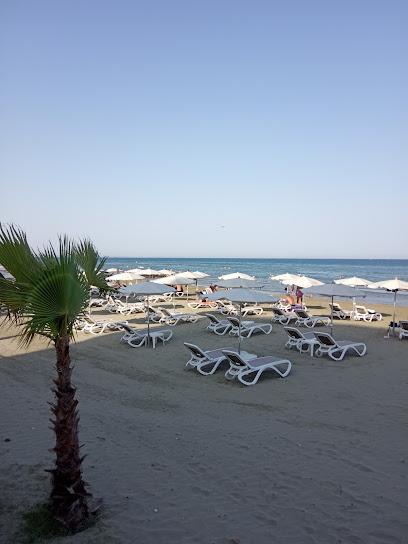
Kastella Beach - Blue Flag
Discover Larnaca's hidden gem: Kastella Beach, a Blue Flag paradise offering tranquil waters, golden sands, and authentic Cypriot charm for an unforgettable Mediterranean escape.
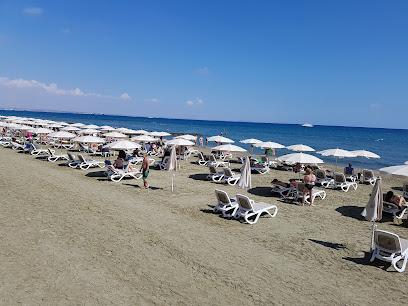
Pattihio Forest Park
Discover Larnaca's tranquil Pattihio Forest Park: a green oasis blending nature and art, perfect for peaceful walks, birdwatching, and family picnics near the famed Salt Lake.
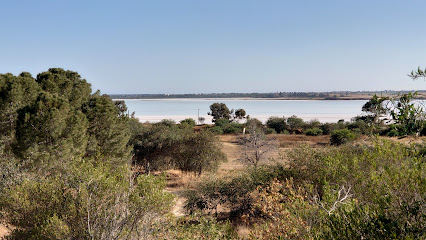
Archaeological Museum of Larnaka District
Discover Cyprus's ancient past at the Larnaka District Archaeological Museum, showcasing artifacts from Neolithic settlements to the Roman era, including finds from the city-kingdom of Kition.
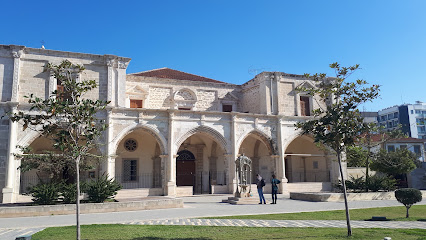
Bee & Embroidery Museum
Explore the fascinating world of beekeeping and traditional embroidery at the Bee & Embroidery Museum in Kato Drys, Cyprus.
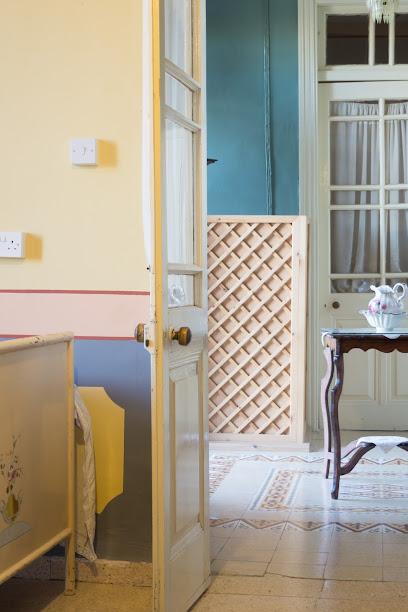
Pierides Museum - Bank of Cyprus Cultural Foundation
Explore the Pierides Museum in Larnaca, Cyprus, and uncover the island's rich archaeological history and cultural heritage through its extensive collection of artifacts.
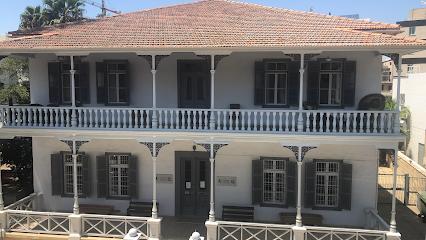
Pierides Museum - Bank of Cyprus Cultural Foundation
Discover 9,000 years of Cypriot history at the Pierides Museum in Larnaca, home to an extensive collection of artifacts in a beautifully preserved colonial mansion.
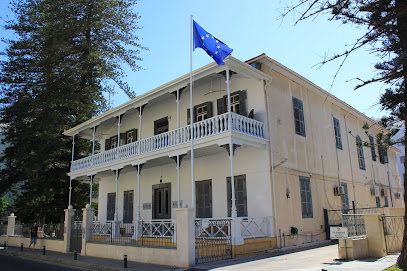
Hobos Amusement spot
Experience a day of thrill and joy at Hobos Amusement Spot, Larnaca's premier amusement park, perfect for families and adventure seekers.
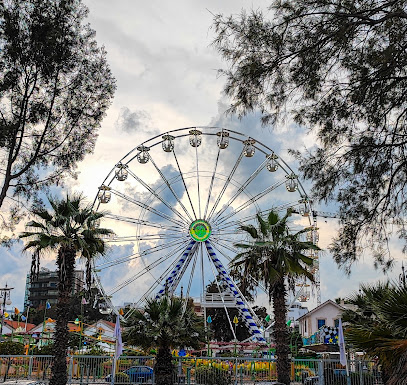
Mackenzie
Experience the allure of Mackenzie Beach in Larnaca: golden sands, crystal waters, vibrant nightlife, and a taste of Cypriot paradise await on this sun-kissed Mediterranean haven.
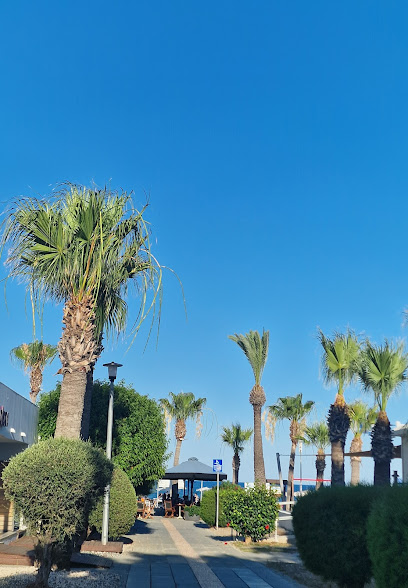
Flamingo observatory spot
Witness the spectacle of vibrant flamingos at Larnaca Salt Lake's Flamingo Observatory Spot, a haven for birdwatchers and nature enthusiasts seeking tranquility and natural beauty.
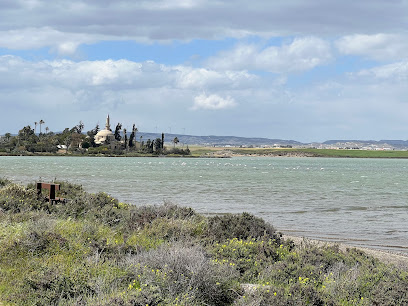
Tower of Rigena
Discover the Tower of Rigena in Perivolia, Cyprus: a historic medieval tower offering panoramic views and a glimpse into the island's rich Byzantine and Venetian past.
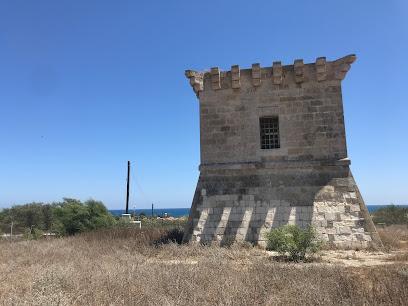
Venetian Winged Lion
Discover the Venetian Winged Lion, a historic symbol of strength and artistry in Larnaca, showcasing Cyprus's rich cultural heritage.
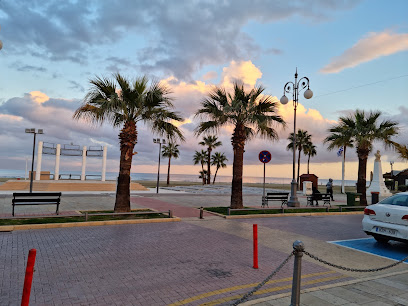
Άγαλμα Στρατηγού Κίμων
Discover the Statue of General Kimon in Larnaca, a tribute to ancient Greek heroism and a symbol of Cyprus's rich history, offering stunning sea views and cultural insights.
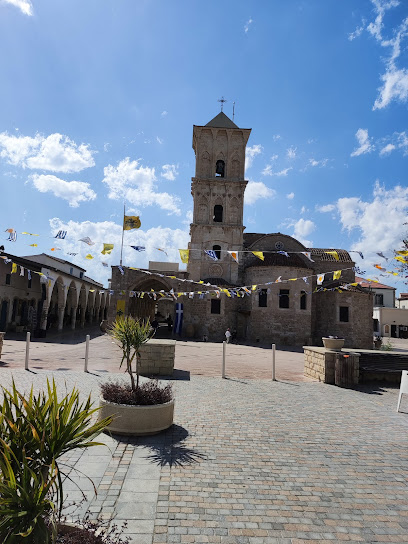
St. Irene
Discover the serene beauty and rich heritage of St. Irene, a captivating Greek Orthodox church in Perivolia, Cyprus, offering a tranquil escape into the island's spiritual heart.
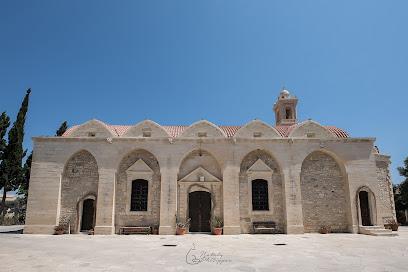
Bench flaming view
Discover the shimmering beauty of Larnaca Salt Lake: a haven for flamingos, a landscape of salt, and a tapestry of history, offering a unique Cypriot experience.
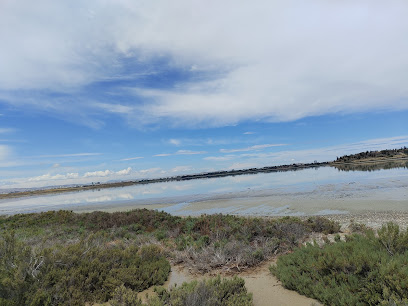
Essential places to dine
Ocean Basket Larnaca
Discover Ocean Basket Larnaca: A top seafood restaurant offering fresh fish & chips with breathtaking views on Cyprus's beautiful coast.
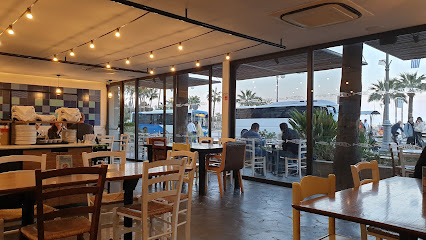
Militzis Traditional Tavern
Savor the authentic tastes of Greece at Militzis Traditional Tavern in Larnaca - a culinary gem where tradition meets flavor.
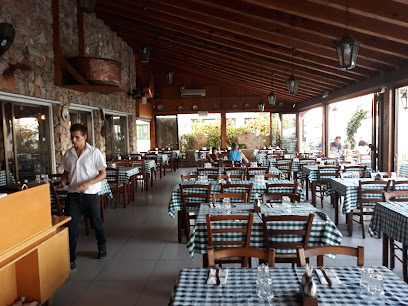
Zephyros Restaurant
Experience the best of Cypriot seafood at Zephyros Restaurant with stunning ocean views in Larnaca.
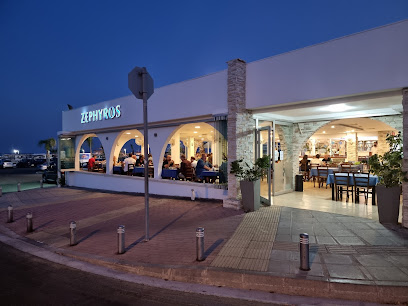
Maqam Al-Sultan Restaurant
Savor the essence of Lebanon at Maqam Al-Sultan Restaurant – where every dish tells a story.
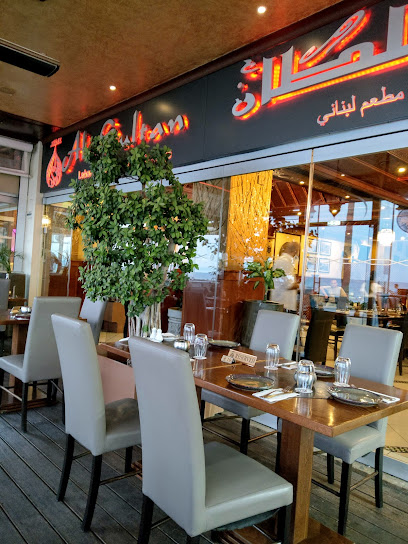
Ithaki Garden Restaurant
Experience the essence of Cypriot cuisine at Ithaki Garden Restaurant in Larnaca - where every meal is a celebration of flavor.
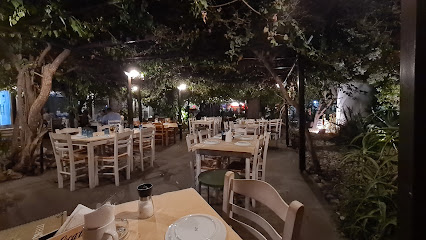
Ammos
Discover Ammos: A beachfront culinary gem in Larnaca offering exquisite Mediterranean dishes & vibrant nightlife.
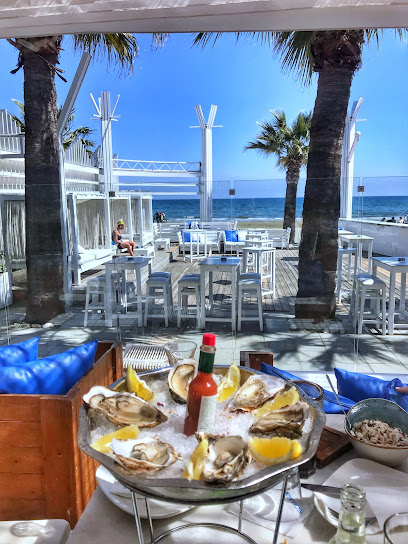
Aldente Cucina Italiana
Experience authentic Italian cuisine at Aldente Cucina Italiana in Larnaca - where every dish tells a delicious story.
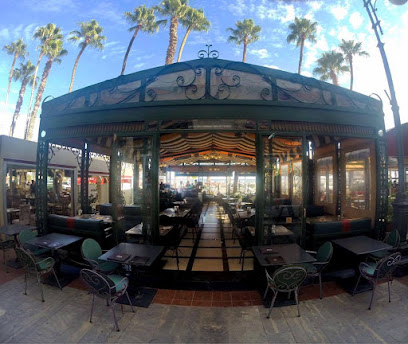
Psarolimano
Discover Psarolimano in Larnaca: A top-rated fish restaurant serving fresh seafood with breathtaking views of the Mediterranean.
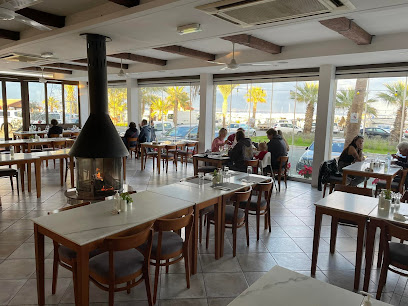
To Arxontikon
Discover authentic Greek cuisine at To Arxontikon in Larnaca—where tradition meets flavor in every dish.
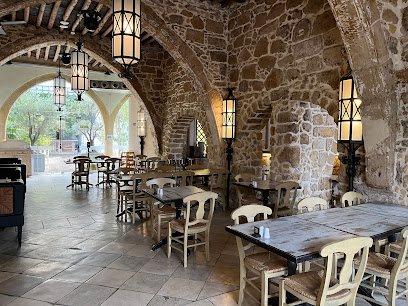
ALMAR Seafood Bar
Discover ALMAR Seafood Bar in Larnaca: Fresh seafood delights paired with breathtaking views of the Mediterranean coastline.
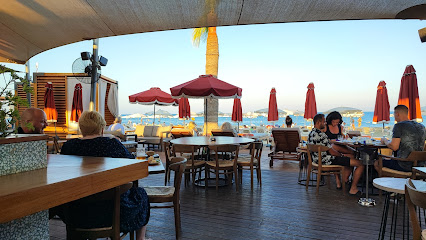
Panos Steak House
Indulge in exquisite steaks and a delightful dining atmosphere at Panos Steak House in Larnaca, Cyprus.
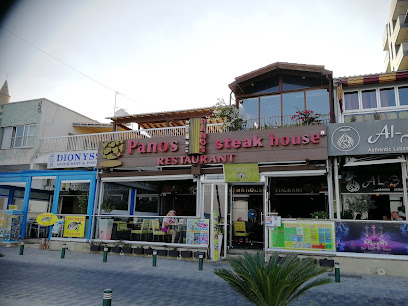
Alasia
Discover Alasia in Larnaca – where authentic Cypriot flavors meet warm hospitality in a charming setting.
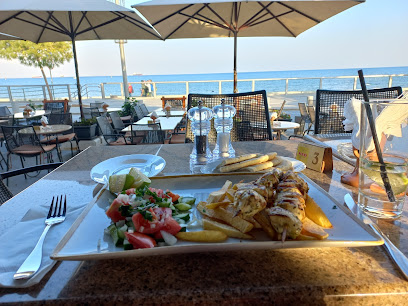
Stefanos
Discover the best seafood in Larnaca at Stefanos – where fresh flavors meet stunning sea views.
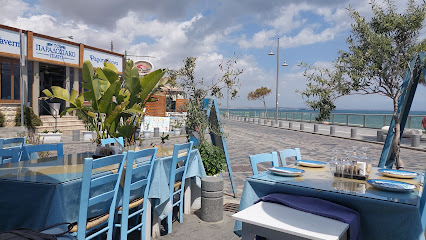
Noesis Restaurant & Lounge Bar
Discover exquisite dining at Noesis Restaurant & Lounge Bar in Larnaca – where local flavors meet modern culinary artistry.
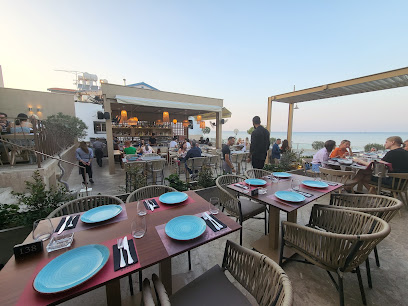
Charmers Fish Tavern & Steak House
Discover exquisite seafood and succulent steaks at Charmers Fish Tavern & Steak House in Larnaca—where every meal is a delightful experience by the sea.
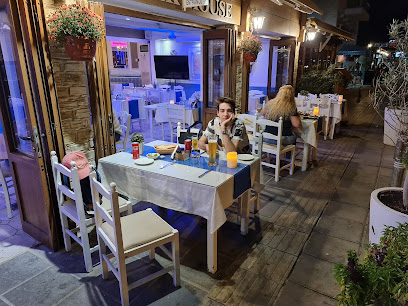
Markets, malls and hidden boutiques
Metropolis Mall@Larnaca
Discover the ultimate shopping experience at Metropolis Mall in Larnaca, where diverse shops, delightful dining, and entertainment await.
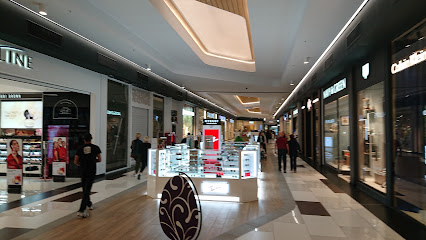
Cyprus Duty Free
Discover unbeatable deals on luxury goods and local treasures at Cyprus Duty Free in Larnaca International Airport.
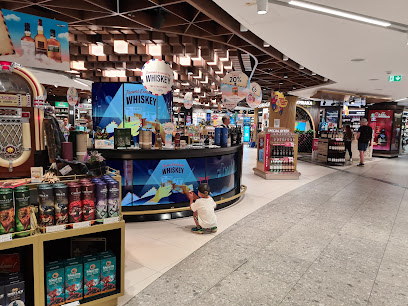
Jiovanis Kiosk
Explore the heart of Larnaca at Jiovanis Kiosk, your go-to convenience store for local snacks, souvenirs, and essential supplies.
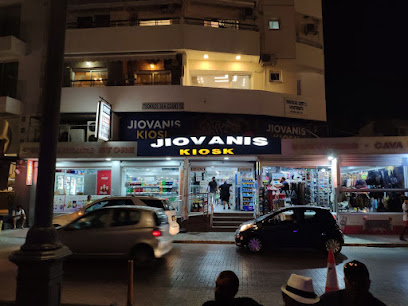
Every day is a gift
Explore exquisite handmade jewelry and pottery at 'Every Day is a Gift', a premier art gallery in the heart of Larnaca, Cyprus.
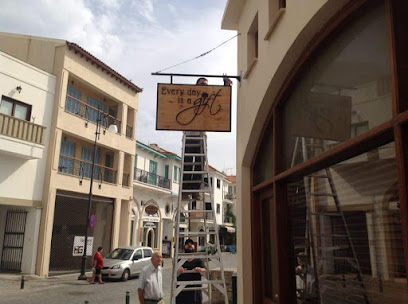
POW! The Shop
Explore POW! The Shop in Larnaca for unique gifts, local crafts, and authentic Cypriot treats that capture the spirit of your travels.
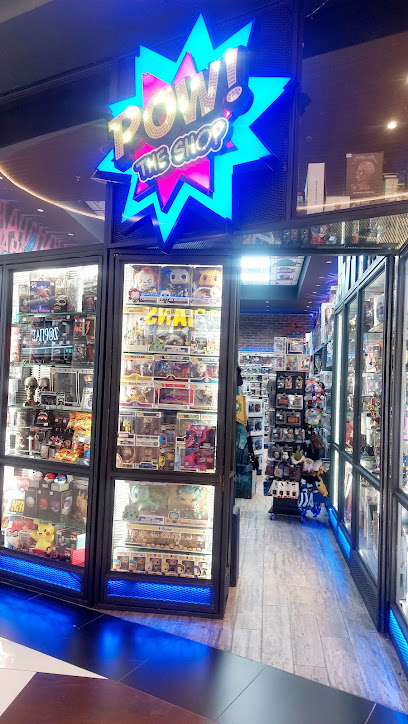
Best Look Clothing
Explore the best of Cypriot fashion at Best Look Clothing in Larnaca, offering a diverse selection of stylish apparel for every occasion.
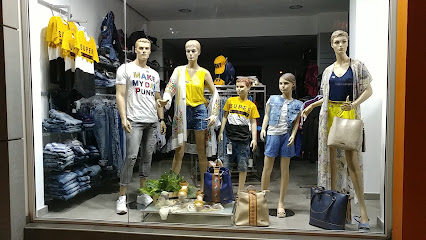
I love Larnaca
Explore I Love Larnaca, a charming souvenir store offering unique gifts that capture the spirit of Cyprus and its vibrant culture.
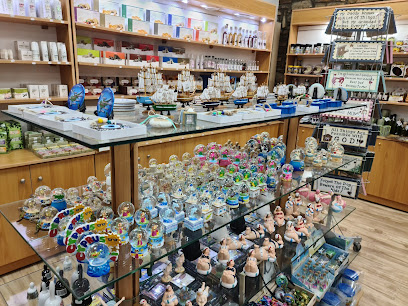
Playgination
Explore the enchanting world of sensory play at Playgination, where creativity meets education for children in Larnaca, Cyprus.

Saint Lazarus Shop
Explore the charm of Cyprus at Saint Lazarus Shop, where unique gifts and local artisan crafts await every visitor.
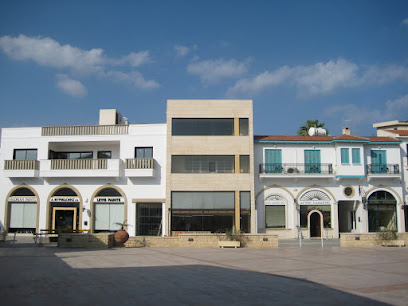
I Love Larnaca Souvenir Shop
Explore the charm of Cyprus with unique souvenirs from the I Love Larnaca Souvenir Shop, your destination for authentic gifts and local treasures.
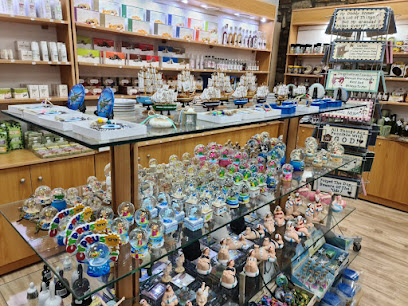
Atlantis Sea Treasures (Seashells & Corals; Souvenirs & Gifts). Магазин сувениров и Подарки. Ракушки и Кораллы.
Explore Atlantis Sea Treasures in Larnaca for unique seashells, corals, and souvenirs embodying the Mediterranean's beauty.
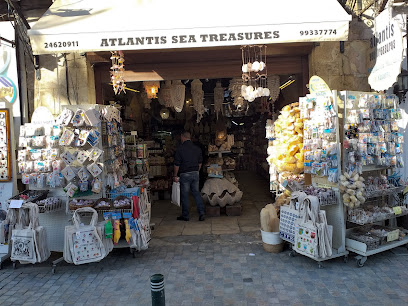
Ambizas souvenirs
Discover unique souvenirs and locally crafted treasures at Ambizas Souvenirs in Larnaca, Cyprus, for the perfect keepsake from your travels.
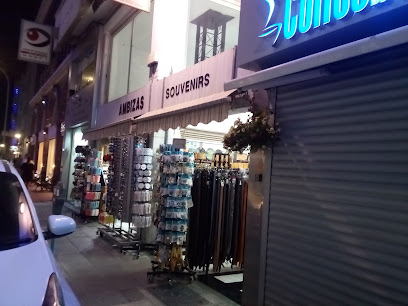
4K Gift Shop
Explore the 4K Gift Shop in Larnaca for unique souvenirs and local treasures that embody the spirit of Cyprus.
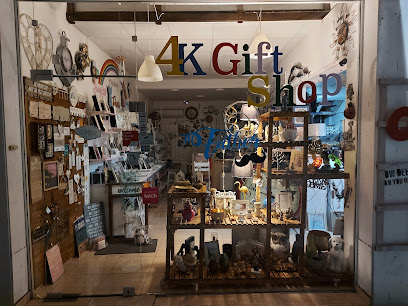
Tourlou Boutique
Explore the charm of Larnaca at Tourlou Boutique, where unique gifts and local craftsmanship await every visitor seeking authentic Cypriot treasures.
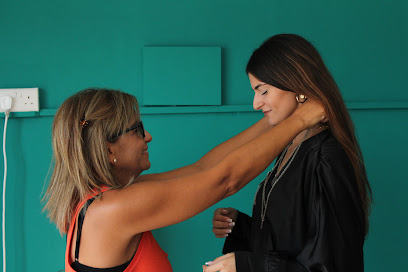
Mira Boutique
Discover unique fashion at Mira Boutique in Larnaca, a charming clothing store showcasing local style and quality craftsmanship.
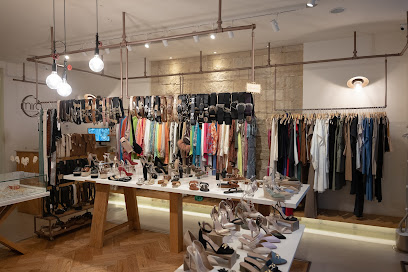
Essential bars & hidden hideouts
Ammos
Experience the perfect blend of Mediterranean flavors and beachside ambiance at Ammos in Larnaca, Cyprus.
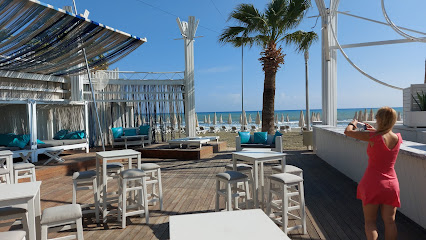
Lush Beach Bar Resto
Discover the vibrant Lush Beach Bar Resto in Larnaca, Cyprus, where delightful flavors meet stunning seaside views for an unforgettable experience.
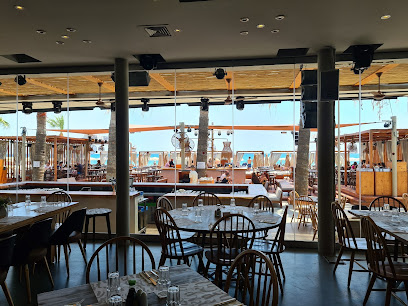
Savino Rock Bar
Discover the electrifying atmosphere of Savino Rock Bar in Larnaca, where live music and vibrant nightlife create unforgettable moments.
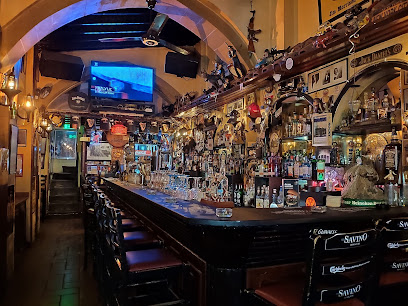
NUSA Beach Bar
Experience the vibrant atmosphere and stunning views at NUSA Beach Bar, the ultimate coastal retreat in Larnaca, Cyprus.
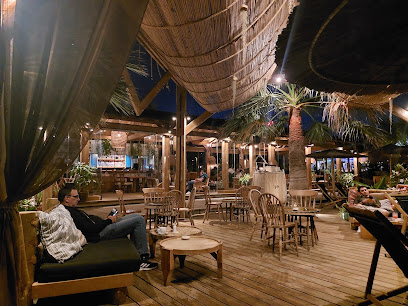
Old Market St.
Discover the lively nightlife of Old Market St., a vibrant bar in Cyprus perfect for making memories and enjoying local flavors.
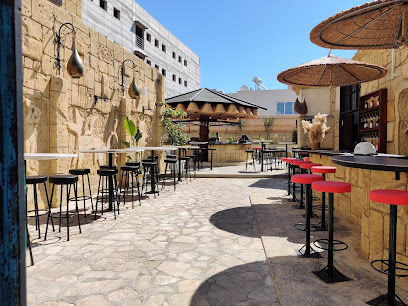
Secret Garden Wine & Coffee Bar
Experience the serene ambiance and exquisite flavors at Secret Garden Wine & Coffee Bar in the heart of Larnaca, Cyprus.
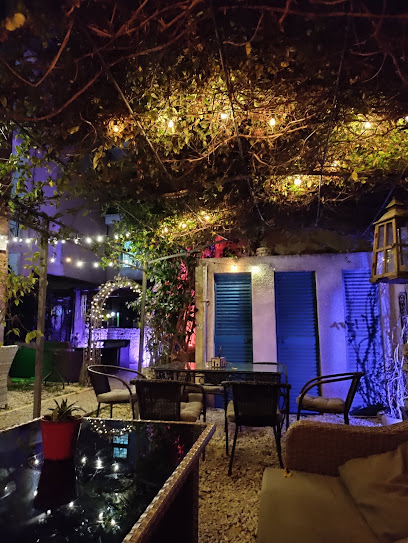
DUENDE Cocktail & more
Experience the vibrant ambiance and unique cocktails of DUENDE Cocktail & More in Larnaca, Cyprus, a must-visit for nightlife enthusiasts.
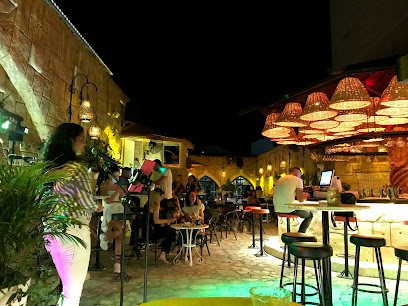
Preserve ALL DAY BAR
Discover the vibrant Preserve ALL DAY BAR in Larnaca, a perfect blend of bar, coffee shop, and restaurant offering delightful culinary experiences.
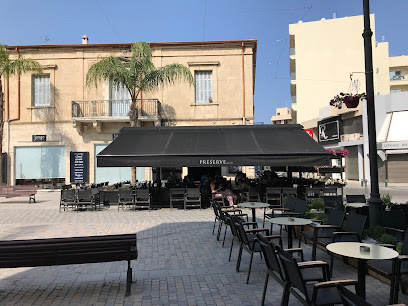
The Tudor Inn Bar & Restaurant
Savor the essence of Cypriot grilling at The Tudor Inn Bar & Restaurant in Larnaca, where culinary excellence meets inviting ambiance.
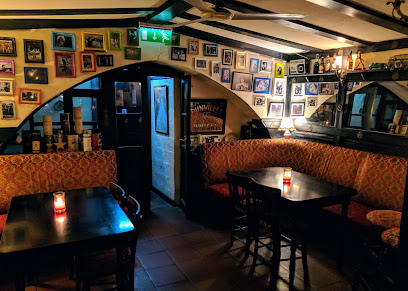
Stories Coctail & Wine Bar
Discover the vibrant nightlife at Stories Cocktail & Wine Bar in Larnaca, offering innovative cocktails and a lively atmosphere that captures the spirit of Cyprus.
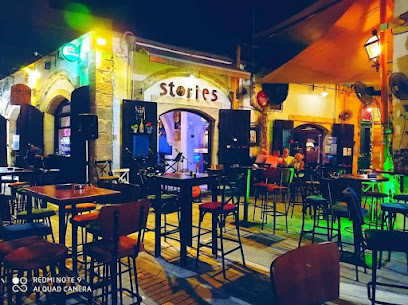
CUCKOO Rooftop
Discover CUCKOO Rooftop, Larnaca's premier cocktail bar offering stunning views, unique drinks, and an unforgettable atmosphere for all visitors.
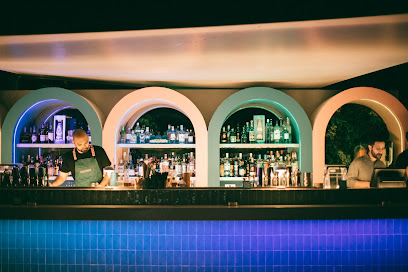
Hot Shots Music Bar
Discover the vibrant nightlife at Hot Shots Music Bar in Larnaca, a hotspot for live music and refreshing drinks, perfect for every traveler.
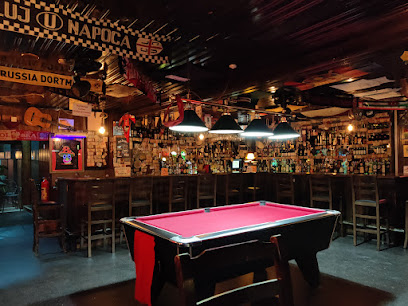
Memories Rooftop Bar
Experience unforgettable sunsets and exquisite cocktails at Memories Rooftop Bar, the perfect nightlife spot in Larnaca, Cyprus.
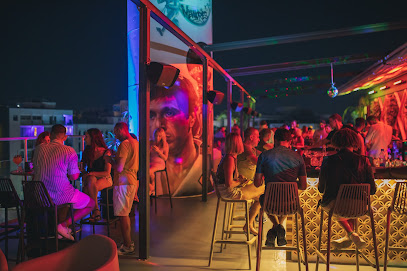
Dylan's Rock Bar
Discover the vibrant nightlife at Dylan's Rock Bar in Larnaca, where expertly crafted cocktails and a lively atmosphere await.
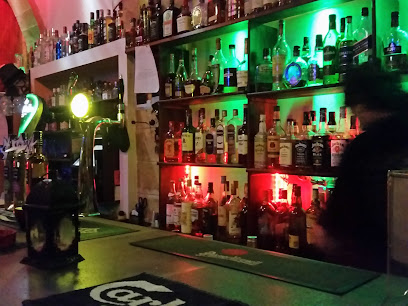
Local Phrases about Larnaca Salt Lake
-
- HelloΓεια σας
[Ya sas] - GoodbyeΑντίο
[Andio] - YesΝαι
[Ne] - NoΌχι
[Ohi] - Please/You're welcomeΠαρακαλώ
[Parakalo] - Thank youΕυχαριστώ
[Efharisto] - Excuse me/SorryΣυγγνώμη
[Signomi] - How are you?Πώς είσαι;
[Pos ise;] - Fine. And you?Καλά. Εσύ;
[Kala. Esi;] - Do you speak English?Μιλάτε Αγγλικά;
[Milate Anglika;] - I don't understandΔεν καταλαβαίνω
[Den katalaveno]
- HelloΓεια σας
-
- I'd like to see the menu, pleaseΘα ήθελα να δω το μενού, παρακαλώ
[Tha ithela na do to menu, parakalo] - I don't eat meatΔεν τρώω κρέας
[Den troo kreas] - Cheers!ΥΓΕΙΑ!
[Yia] - I would like to pay, pleaseΘα ήθελα να πληρώσω, παρακαλώ
[Tha ithela na plirosso, parakalo]
- I'd like to see the menu, pleaseΘα ήθελα να δω το μενού, παρακαλώ
-
- Help!Βοήθεια!
[Voithia!] - Go away!Φύγε!
[Fiye!] - Call the Police!Καλέστε την αστυνομία!
[Kaleste tin astinomia!] - Call a doctor!Καλέστε γιατρό!
[Kaleste giatro!] - I'm lostΈχω χαθεί
[Eho hafi] - I'm illΕίμαι άρρωστος
[Eimai arrostos]
- Help!Βοήθεια!
-
- I'd like to buy...Θα ήθελα να αγοράσω...
[Tha ithela na agoraso] - I'm just lookingΑπλά κοιτάω
[Apla kitao] - How much is it?Πόσο κοστίζει;
[Poso kostizi;] - That's too expensiveΑυτό είναι πολύ ακριβό
[Afto ine poli akribo] - Can you lower the price?Μπορείτε να μειώσετε την τιμή;
[Boreite na miosete tin timi;]
- I'd like to buy...Θα ήθελα να αγοράσω...
-
- What time is it?Τι ώρα είναι;
[Ti ora ine;] - It's one o'clockΕίναι μία ώρα
[Ine mia ora] - Half past (10)Μισή (10)
[Misi (deka)] - MorningΠρωί
[Proi] - AfternoonΑπόγευμα
[Apoyevma] - EveningΒράδυ
[Vradi] - YesterdayΧθες
[Hthes] - TodayΣήμερα
[Simera] - TomorrowΑύριο
[Avrio] - 1Ένα
[Ena] - 2Δύο
[Dio] - 3Τρία
[Tria] - 4Τέσσερα
[Tessera] - 5Πέντε
[Pente] - 6Έξι
[Exi] - 7Εφτά
[Efta] - 8Οχτώ
[Okto] - 9Εννέα
[Ennea] - 10Δέκα
[Deka]
- What time is it?Τι ώρα είναι;
-
- Where's a/the...?Πού είναι ένα/το...;
[Pou ine ena/to...;] - What's the address?Ποια είναι η διεύθυνση;
[Pia ine i diefthinsi;] - Can you show me (on the map)?Μπορείτε να μου δείξετε (στο χάρτη);
[Boreite na mou dixete (sto charti);] - When's the next (bus)?Πότε είναι το επόμενο (λεωφορείο);
[Pote ine to epomeno (leoforeio);] - A ticket (to ....)Ένα εισιτήριο (για...)
[Ena isitirio (gia...)]
- Where's a/the...?Πού είναι ένα/το...;
History of Larnaca Salt Lake
-
Larnaca Salt Lake has been a vital site for trade and commerce since antiquity. The lake's salt deposits were highly valued and traded extensively throughout the Mediterranean region. Archaeological findings suggest that salt extraction and trade were practiced as far back as the Bronze Age. The strategic location of Larnaca on the southern coast of Cyprus made it a bustling hub for merchants and traders.
-
During the Byzantine period, Larnaca Salt Lake continued to hold economic importance due to its salt production. The salt harvested from the lake was not only used locally but also exported to various parts of the Byzantine Empire. The area's prosperity attracted settlers and contributed to the development of nearby urban centers.
-
The Ottoman era brought a new dimension to Larnaca Salt Lake's cultural landscape. In the 18th century, the Hala Sultan Tekke mosque was constructed on the western shore of the lake. This mosque, dedicated to Umm Haram, a companion of the Prophet Muhammad, is considered one of the holiest sites in Islam and attracts pilgrims from around the world. The mosque's presence added a layer of spiritual significance to the region.
-
Under British colonial rule, significant infrastructure developments were initiated around Larnaca Salt Lake. The British authorities recognized the importance of the lake's salt production and implemented modern extraction techniques to boost efficiency. Additionally, the construction of roads and railways improved connectivity, facilitating the transport of salt and other goods.
-
In recent decades, Larnaca Salt Lake has become a focal point for environmental conservation. Recognized as a vital wetland, the lake is home to diverse flora and fauna, including migratory birds such as flamingos. Conservation initiatives have been implemented to protect the delicate ecosystem and promote sustainable tourism. The lake's status as a protected area underscores its ecological and cultural significance in contemporary times.
Larnaca Salt Lake Essentials
-
Larnaca Salt Lake is located near the city of Larnaca in Cyprus. The nearest international airport is Larnaca International Airport (LCA), which is just a short drive away. From the airport, you can take a taxi, rent a car, or use airport shuttle services to reach the salt lake. The lake is also well-connected by road, making it easily accessible from other parts of Cyprus.
-
Public transportation options to Larnaca Salt Lake include buses and taxis. The local bus service is efficient and affordable, with several routes connecting the salt lake to Larnaca city center and other nearby areas. Taxis are readily available and can be a convenient option for direct travel. Renting a car is also a popular choice, allowing for greater flexibility in exploring the surrounding region.
-
The official currency of Cyprus is the Euro (EUR). Credit and debit cards are widely accepted, especially in hotels, restaurants, and larger shops. However, it's advisable to carry some cash for smaller establishments and market purchases. ATMs are plentiful in Larnaca, including near the salt lake area, making it easy to withdraw cash when needed.
-
Larnaca Salt Lake is generally a safe destination for tourists. However, as with any travel destination, it's important to remain vigilant. Avoid walking alone at night in secluded areas and keep an eye on your belongings in crowded places. There are no specific high-crime areas targeting tourists near the salt lake, but standard precautions should always be taken.
-
In case of emergency, dial 112 for immediate assistance, which is the emergency number in Cyprus. There are local police stations and medical facilities in Larnaca city. Ensure you have travel insurance that covers medical emergencies. Pharmacies are available in the city for minor health issues and over-the-counter medications.
-
Fashion: Do wear comfortable and practical clothing, especially if you plan to walk around the salt lake. Avoid overly revealing attire. Religion: Do respect the local customs and traditions. When visiting religious sites, dress conservatively and cover your shoulders and knees. Public Transport: Do respect the rules and offer your seat to elderly passengers. Don't eat or drink on public transport. Greetings: Do greet people warmly, a simple 'hello' or 'kalispera' (good evening) in Greek is appreciated. Eating & Drinking: Do try the local cuisine and be open to tasting new dishes. Don't refuse food or drink offered by locals, as it can be seen as impolite.
-
To experience Larnaca Salt Lake like a local, visit during the early morning or late afternoon when the light is perfect for photography and the flamingos are often visible. Bring binoculars for bird watching. If you visit in winter, you may witness the stunning sight of thousands of flamingos. For a unique experience, explore the nearby Hala Sultan Tekke mosque and the Larnaca Aqueduct. Engage with locals who are usually friendly and willing to share stories about the area.
Trending Landmarks in Larnaca Salt Lake
-
Holy Church of Saint Lazarus
-
Finikoudes Beach
-
Landmark of Hala Sultan Tekkesi
-
Larnaca Marina
-
Larnaka Medieval Fort
-
Kamares Aqueduct
-
Salt Lake View Point
-
Kastella Beach - Blue Flag
-
Pattihio Forest Park
-
Larnaca Salt Lake Trail
-
Archaeological Site of Kition
-
Flamingo observatory spot
-
Byzantine Museum of Saint Lazarus
-
The Salt & Pepper Museum
-
Salt lake
Nearby Cities to Larnaca Salt Lake
-
Things To Do in Ayia Napa
-
Things To Do in Famagusta
-
Things To Do in Nicosia
-
Things To Do in Protaras
-
Things To Do in Limassol
-
Things To Do in Kyrenia
-
Things To Do in Troodos
-
Things To Do in Pissouri
-
Things To Do in Paphos
-
Things To Do in Polis Chrysochous
-
Things To Do in Kato Paphos
-
Things To Do in Batroun
-
Things To Do in Byblos
-
Things To Do in Beirut
-
Things To Do in Jounieh








